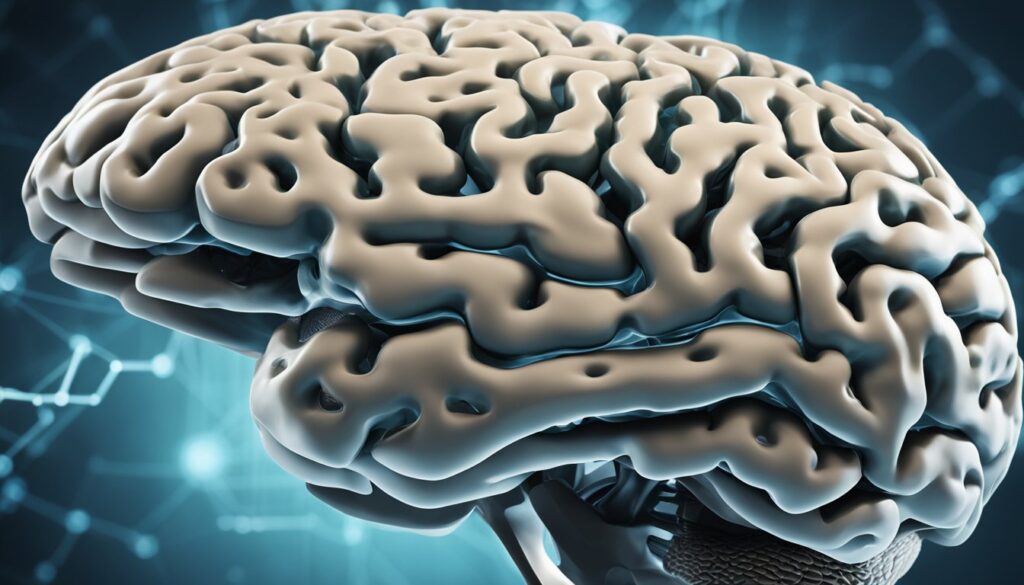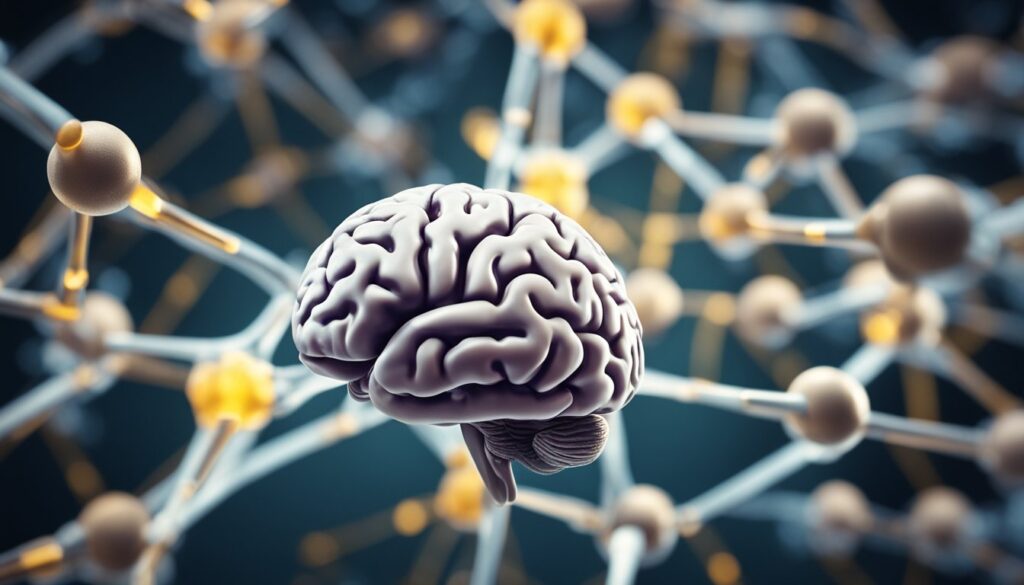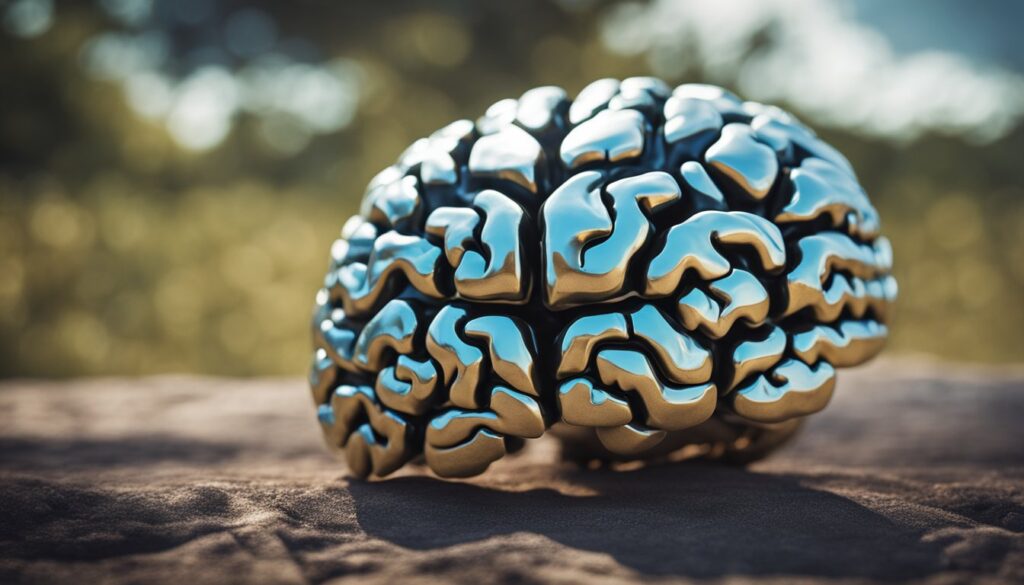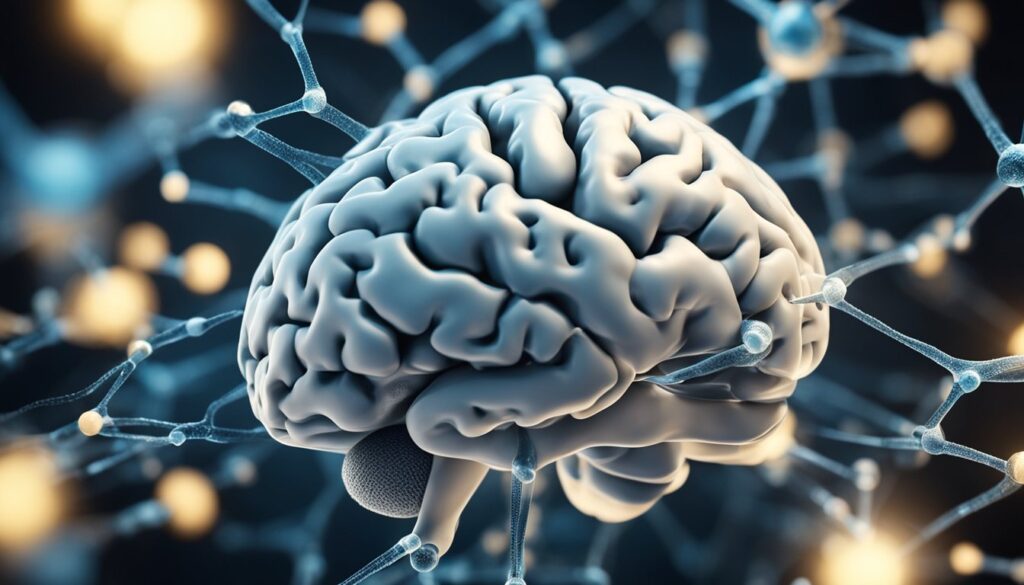Testosterone, the primary male sex hormone, plays a crucial role in your body, influencing more than just muscle mass and libido. It has significant effects on the brain that contribute to the development of male characteristics and behavior. You may not be aware that testosterone levels affect cognitive functions, emotional well-being, and social behaviors, making it a hormone of interest not only for physical health but also for psychological and neurological health.

In your brain, testosterone works by interacting with androgen receptors to influence various brain functions. This interaction impacts your mood, aggression levels, and even cognitive abilities like spatial reasoning. Research suggests that these effects can be seen throughout your life, as testosterone modulates brain chemistry from prenatal stages through adulthood.
Understanding how testosterone influences behavior and cognitive function is essential for grasping the complexities of human development and interpersonal dynamics. It’s more than a simple case of more testosterone equals more aggression; the hormone has a nuanced and pervasive role in shaping how you think, feel, and interact with the world around you.
Testosterone: Regulation and Role in the Brain

Your understanding of testosterone’s impact on the brain not only involves its roles in behavior and cognition but also its intricate regulation mechanism. Delving into the biosynthesis and regulation of this hormone reveals how it is intricately linked to brain function and cognitive processes.
Biosynthesis and Regulation
Testosterone synthesis begins with cholesterol in the Leydig cells located within your testes. Luteinizing hormone, released from the pituitary gland, regulates the production of testosterone. As you age, changes in the hypothalamus and pituitary gland can lead to conditions like hypogonadism, affecting testosterone levels. The regulation of testosterone involves a feedback loop where the brain modulates the hormone’s production through signals sent to the pituitary gland and then to the testes.
Androgen Receptors and Brain Function
Once produced, testosterone exerts its effects by binding to androgen receptors present in various brain regions, such as the amygdala, hippocampus, and hypothalamus. This binding can influence neurons, gene expression, and ultimately brain function. Neuroimaging studies have offered insights into how testosterone and androgen receptors interact, affecting the brain’s structure and activity.
Testosterone and Cognitive Processes
Testosterone has been implicated in several cognitive processes including memory, intelligence, and spatial tasks. Specific brain areas, like the hippocampus, are crucial for memory and are sensitive to testosterone levels. Mental rotation, a spatial task, is one cognitive function that has been shown to be influenced by testosterone. Cognitive function in aging men can decline, and testosterone replacement therapy is studied extensively to mitigate such effects.
Remember, maintaining balanced testosterone levels is critical for your brain’s health and cognitive functions as fluctuations may affect your overall well-being.
Behavioral and Psychological Impact of Testosterone

Testosterone, a pivotal sex hormone in both males and females, exerts significant influence on your brain and behavior. It affects emotional regulation and mood, contributes to gender-specific behaviors, and has broad clinical implications.
Emotional Regulation and Mood Variability
You may experience changes in mood stemming from fluctuations in testosterone levels. This androgen is linked to emotional responses and has been studied using magnetic resonance imaging (MRI) to see its effects in the brain. A testosterone deficiency can contribute to mood disorders such as depression, while elevated levels are sometimes associated with aggression and changes in libido. The science of psychoneuroendocrinology explores how hormonal variations affect your mood and emotions, underscoring the delicate balance needed for psychological health.
Testosterone in Gender-specific Behavior and Health
Testosterone plays a role in defining sex differences in behavior and health. For males, hypogonadal conditions, where the body doesn’t produce enough testosterone, can lead to changes in social behavior and have been connected to decreased health outcomes. Interestingly, the interplay between testosterone, estrogen, and other sex hormones can influence gender differences in the prevalence of certain psychiatric disorders.
Clinical Implications and Therapeutic Interventions
In therapeutic contexts, testosterone therapy might be utilized to ameliorate symptoms of testosterone deficiency in men, such as those suffering from major depressive disorder or exhibiting depressive symptoms. Conversely, androgen deprivation therapy is used in the treatment of prostate cancer but can lead to significant behavioral side effects. The field of pharmacology therefore plays a crucial role in developing treatments that balance testosterone levels to alleviate mood and psychiatric disorders while minimizing adverse effects.
Frequently Asked Questions

The following FAQs delve into how testosterone impacts your brain and behavior, including its influence on cognition, mood, aggression, neurological development, stress, and interaction with brain receptors.
How does testosterone influence cognitive functions and decision-making?
Testosterone plays a crucial role in various cognitive functions. Your memory, spatial abilities, and decision-making processes may all be influenced by this hormone, impacting tasks that require concentration and reasoning.
Can elevated testosterone levels lead to changes in mood or emotional state?
Yes, elevated levels of testosterone can affect your mood and emotions. You may experience variations in feelings, such as an increase in irritability or confidence, potentially influencing your emotional state and reactions to situations.
What are the implications of testosterone on aggression and competitive behaviors?
Testosterone is linked to the regulation of aggression and competitive behaviors. Your propensity for dominance and competitiveness in social situations can be associated with your testosterone levels.
In what ways does testosterone affect neurological development and plasticity?
Testosterone contributes to the development of the brain and its plasticity, which is the brain’s ability to change throughout life. The hormone influences the growth of neural pathways and can affect how your brain adapts to new information and experiences.
What is the role of testosterone in the regulation of stress and anxiety responses?
Testosterone is involved in the regulation of stress and anxiety responses. It can modulate how you respond to stress, potentially altering the level of anxiety you feel in stressful situations.
How does testosterone interact with brain receptors to modulate behavior?
Testosterone interacts with various brain receptors, such as androgen and estrogen receptors, to influence your behavior. This hormonal interaction with receptors can lead to alterations in mood, aggression, and sexual behavior.